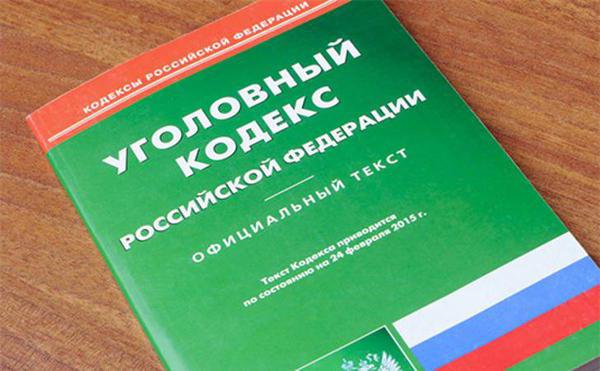UK admits sentencing more lenient than provided for this crime. This possibility is enshrined in article 64 of the Code. 
Provisions Art. 64 of the Criminal Code reflect the principles of humanity and justice specified by criminal law. They are aimed at reducing sanctions to the necessary minimum limit of enforcement measures, the implementation of which ensures the achievement of the goal of criminal punishment.
Consider the features of making sentences using Article 64 of the Criminal Code.
The content of the norm
According to 1 part cT. 64 of the Criminal Code, upon revealing exceptional circumstances concerning the motives and goals of the crime, the role of the subject involved in it, his behavior, including after the commission of the act, other circumstances that reduce the degree of danger of the crime, as well as in the active assistance of the person who participated in the group attack, his disclosure may be punished:
- Below the minimum size established in the relevant norm of the Special Part.
- Softer than enshrined in the relevant article.
- Without applying the additional sanction provided as mandatory.
When applying the provisions Art. 64 of the Criminal Code exceptional may be recognized as individual circumstances, or their combination. 
Limitations
They are installed in 3 parts. Art. 64 CC.
According to the norm, mitigation of punishment by one of the above methods is not allowed in relation to persons involved in the acts provided for in articles 361, 205-205.5, 206 (parts 3, 4), 211 (parts 4). This rule also applies to entities guilty of crimes involving terrorist activities, provided for in Art. 360, 277-279.
Commentary on Art. 64 CC
The provisions of the considered norm can be applied only in the presence of certain (exceptional) circumstances. The legislation does not disclose the concept of exclusivity. This means that the relevant circumstances the court must establish and evaluate on their own, fixing them in the verdict.
Exceptions may include factors that significantly reduce the degree of danger of a crime committed by the subject, or directly to the violator of the law.
The court can recognize such circumstances as individual factors and their combination. At the same time, the verdict must indicate the grounds for the court decision. 
Nuances
Exceptional circumstances can be considered as factors directly enshrined in law, or others that the court considers to be such.
In establishing the circumstances, the court must evaluate the goals and motives of the unlawful act, the role of the person involved in the act, the features of his behavior both during and after the attack, information characterizing the identity of the guilty person, etc.
AT Art. 64 CC focuses on such a factor as the active assistance of the subject in the disclosure of group abuse. This circumstance is recognized as exceptional in itself within the meaning of the rule in question.
Sanction below minimum
The court has the right to impose a smaller sentence on the perpetrator than this establishes the relevant norm of the Special Part.
Many articles set clear limits on sanctions. For example, in part 1 of the norm 105, punishment is set from 6 to 15 years in prison. When applying the rules Art. 64 CC the court has the right to impute to the guilty person less than six years in prison. 
Milder sanction
When it is appointed, the court is guided by the provisions of article 44 of the Criminal Code and selects from the existing list of punishments enshrined in this norm.
Applying provisions Art. 64 CC, the court has the right to impose any kind of sanction enshrined in Art. 44, including those not specified in the norm of the Special Part, which is charged to the person.
Important points
As shows judicial practice under Art. 64 of the Criminal Code, the availability of milder alternative sanctions does not prevent the imposition of punishments below the minimum amount.
For example, under the 3rd part of Article 145.1, a fine of 200-500 thousand rubles is provided. or constituting the value of the guilty’s income for 1-3 g. The same norm enshrines the punishment of 2-5 years in prison with a ban on conducting activities / filling posts determined by a judge up to 5 years. If there are grounds established by 64 articles of the Code, a citizen may be assigned less than 2 years of imprisonment, despite the presence of a fine, which is a milder punishment, among the sanctions. 
At the same time, the courts should take into account that the rule in question does not establish the possibility of mitigating the regime of the perpetrator’s stay in the correctional institution. That is, it cannot be assigned softer than provided for in article 58.
Non-application of additional sanction
Regulation 64 of the article allowing for the exclusion of additional punishment from a sentence may be applied only if the provision of the Special Part provides it not as an alternative, but as a mandatory punishment.
Such acts include, for example, the acquisition, production, transportation, storage, marketing of unlabelled products, the purchase or sale of property obtained in a knowingly unlawful way, violation of traffic rules, as well as the rules for operating vehicles.
additional information
The court has the right to impose a sanction lower than that prescribed for a particular type of punishment. Its term and size, however, in any case, cannot be less than the minimum limits fixed by the norms of the Special Part as applied to each form of criminal sanction. For example, restriction / imprisonment, correctional labor cannot be assigned for less than 2 months, compulsory labor for less than 60 hours, and the fine should be at least 5 thousand rubles. (before 2011, 2.5 thousand rubles) or make up the amount of the guilty income in at least 2 weeks. 
So, in one of the cases, a citizen was convicted under part 1 of article 297 of the Criminal Code, using provisions of 64 of the Code. For a committed act, a fine of 1 thousand rubles was imputed. However, the state prosecutor in the cassation submission indicated that the size of the imposed sanction is contrary to the rules of s. 46. In accordance with this article, the minimum fine should amount to 2.5 thousand rubles. Taking this into account, the state prosecutor in his submission asked to cancel the court’s verdict handed down earlier, and to forward the case materials for reconsideration. The panel of judges agreed with the applicant. The cassation appeal was upheld, and the case was referred to the court for a new trial.
Exceptions to the Rules
In article 64, cases are indicated when the norms on commutation of punishment by a milder one are not applied. These situations include the commission of crimes by the perpetrators, which pose a particular danger to society. These include acts related to terrorist activities. It is logical that in such cases, the use of lenient sanctions will not achieve the goals of justice.